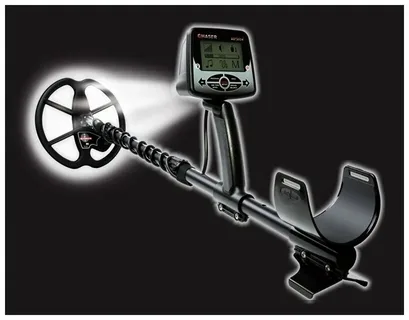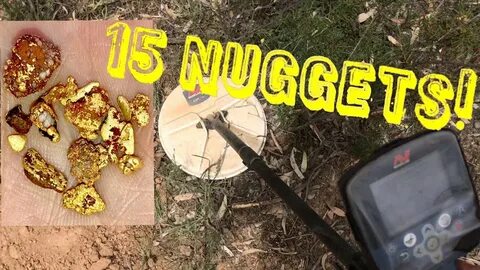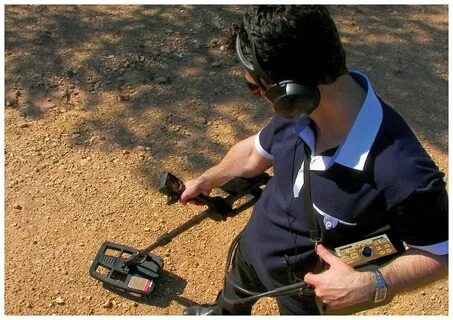Metal detectors have long been used by hobbyists and enthusiasts to unearth treasures hidden beneath the earth’s surface. Whether searching for lost coins, ancient artifacts, or buried treasure, the right metal detector can make all the difference. In this guide, we will explore the best metal detectors for hobbyists and enthusiasts, helping you to uncover valuable treasures with ease and precision. Whether you are an experienced detectorist or just starting out, this guide will provide you with valuable information on finding the perfect metal detector for your needs.
Unearthing Treasures: The Best Metal Detectors for Hobbyists and Enthusiasts is a comprehensive guide that reviews and recommends the top metal detectors available for those who enjoy metal detecting as a hobby. The guide provides in-depth analysis of various models, highlighting their features, capabilities, and performance. It also offers valuable insights and tips on choosing the right metal detector based on specific needs and preferences. Whether you are a beginner or an experienced enthusiast, this guide can help you make an informed decision when purchasing a metal detector for your treasure hunting adventures.
The Ultimate Guide to Metal Detectors for Beginners
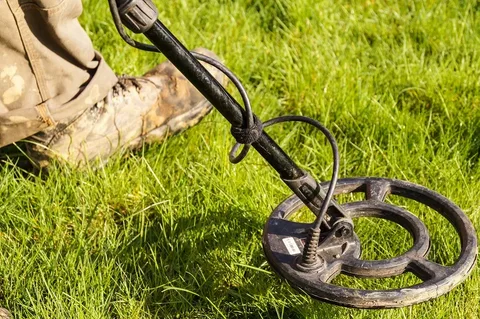
The Ultimate Guide to Metal Detectors for Beginners is a comprehensive resource that covers everything a novice would need to know about metal detecting. It includes information on different types of metal detectors, how they work, and the various features to consider when choosing one. The guide also provides tips and techniques for successful metal detecting, as well as advice on where to hunt for treasure and how to properly maintain your equipment. Whether you’re interested in treasure hunting, beach combing, or simply exploring the great outdoors, this guide is an invaluable tool for anyone new to the hobby of metal detecting.
Top 10 Metal Detectors for Gold and Silver Hunting
See also: a gold detector
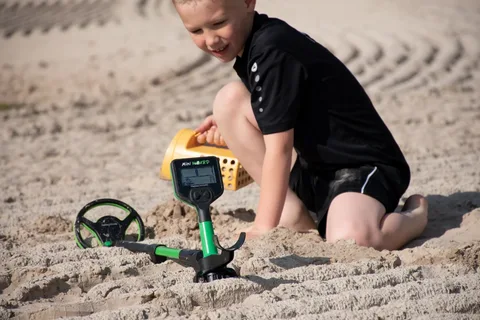
1. Minelab GPZ 7000: Known for its deep gold detection capabilities.
2. Garrett ATX: Ideal for both gold and silver hunting, with exceptional performance in various terrains.
3. Fisher Gold Bug 2: Highly sensitive to small gold nuggets and excellent for prospecting.
4. Nokta Makro Gold Kruzer: Offers high performance in finding small gold nuggets and can be used in various environments.
5. Tesoro Lobo SuperTRAQ: Known for its high sensitivity to small gold and silver targets.
6. Whites Goldmaster GMT: Popular for its ability to find gold in highly mineralized soil.
7. Minelab Gold Monster 1000: Features automatic noise cancelling and high sensitivity to small gold nuggets.
8. Bounty Hunter TK4 Tracker IV: Affordable option for beginners with decent performance in finding gold and silver.
9. Garrett AT Pro: Versatile detector suitable for both gold and silver hunting, with customizable settings.
10. XP DEUS: Known for its wireless technology and high sensitivity to small gold and silver targets.
How to Choose the Right Metal Detector for Your Needs
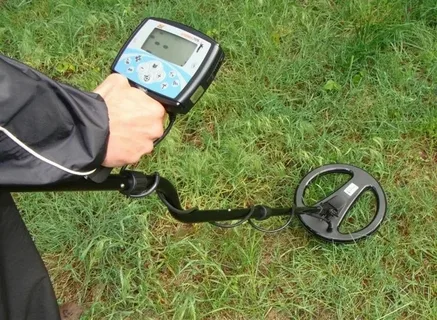
When choosing a metal detector, consider where you will be using it and what kind of objects you hope to find. For example, if you plan to search for gold nuggets in highly mineralized soil, you will need a detector specifically designed for that purpose. Consider the weight and adjustable length of the detector, as well as any special features like waterproofing or discrimination settings. Finally, set a budget and research different models within that price range to find the best option for your needs.
Exploring the World of Vintage Metal Detectors

Exploring the World of Vintage Metal Detectors provides a comprehensive look at the history, development, and functionality of metal detectors from past decades. This may include information on popular models, manufacturers, and key technological advancements that have shaped the vintage metal detecting world. Additionally, the book may offer valuable insights on how to use and maintain vintage metal detectors, as well as tips for identifying and appraising older models. Overall, this resource is essential for metal detecting enthusiasts who want to gain a deeper understanding of the vintage metal detecting landscape.
The Best Metal Detectors for Underwater Treasure Hunting
Underwater treasure hunting requires specific metal detectors that are designed to withstand submersion in water and can effectively detect metal objects in aquatic environments. The best metal detectors for underwater treasure hunting generally have waterproof construction, high sensitivity, and discrimination capabilities to distinguish between valuable targets and common debris. Some popular models for underwater treasure hunting include the Minelab Excalibur II, Garrett AT Pro, and Fisher CZ21. These metal detectors are known for their performance in various types of water bodies, including oceans, lakes, and rivers, making them ideal for treasure hunters exploring underwater environments. Additionally, these detectors often feature specialized search coils and advanced technology to enhance target detection and minimize interference from mineralization and saltwater. When choosing a metal detector for underwater treasure hunting, it’s important to consider factors such as depth rating, durability, and ease of use to ensure a successful and enjoyable experience.
Metal Detectors: Uncovering History and Artifacts
Metal detectors have become an invaluable tool for archaeologists and hobbyists alike in uncovering historical artifacts and treasures. These devices are able to detect metal objects buried underground, allowing users to potentially unearth valuable items such as ancient coins, jewelry, or tools.
In the field of archaeology, metal detectors have played a significant role in surveying and mapping historical sites, as well as in the discovery of important artifacts that shed light on the past. They have been used in the exploration of ancient battlefields, burial sites, and lost settlements, providing valuable insights into bygone eras.
For hobbyists, metal detecting is a popular pastime that can lead to the discovery of rare and fascinating items. Many enthusiasts enjoy the thrill of searching for hidden treasures in their local parks, beaches, and other public areas.
While metal detecting can be an exciting and rewarding activity, it is important for users to be mindful of laws and regulations regarding artifact collection and excavation. In some cases, the discovery of certain historical artifacts may be subject to specific legal requirements or may even need to be reported to authorities.
Overall, metal detectors have proven to be a valuable tool for uncovering history and artifacts, whether in a professional archaeological context or as a recreational pursuit. Their ability to locate buried metal objects has opened up new possibilities for understanding and appreciating the past.
The Science Behind How Metal Detectors Work
Metal detectors work based on the principle of electromagnetism. When a metal object comes near the detector, it disrupts the magnetic field around the detector and generates a current in the coil. This current is then amplified and interpreted by the detector, signaling the presence of metal. Different metals can be detected based on their conductivity and magnetic properties. This is how metal detectors are able to distinguish between different types of metals. Overall, the science behind how metal detectors work is rooted in the principles of electromagnetism and the interaction between metal and magnetic fields.
Metal Detectors: A Hobby for the Whole Family
Metal detecting is a popular hobby for many people of all ages. It can be a fun and exciting activity for the whole family to enjoy together. Whether you are searching for lost jewelry on the beach or uncovering buried treasure in your own backyard, metal detecting can be a rewarding and educational pastime.
Metal detectors come in a variety of models and price ranges, making it a hobby that is accessible to people with different budgets. There are also many resources available online and in books that can help beginners learn how to use their metal detectors effectively and responsibly.
Metal detecting can also be a great way to get outdoors and explore new places. Many metal detector enthusiasts enjoy visiting historical sites, beaches, and parks in search of hidden treasures. In addition to the thrill of the hunt, metal detecting can also be a way to connect with the past and learn more about the history of a particular area.
Overall, metal detecting is a hobby that can be enjoyed by people of all ages and walks of life. It can be a great way to spend quality time with the family while also discovering new and interesting things. Whether you are a beginner or an experienced detectorist, there is always something new to learn and discover in the world of metal detecting.
Discovering Lost Coins and Jewelry with Metal Detectors
Discovering Lost Coins and Jewelry with Metal Detectors is a hobby and a pastime for many enthusiasts. Metal detectors can be used to locate and retrieve items that have been lost or buried underground. This can include coins, jewelry, and other metal objects. Many people find the thrill of uncovering hidden treasures to be exciting and rewarding. Metal detecting can be a fun and active outdoor activity that allows for exploration and discovery. Beginners and experienced enthusiasts alike can enjoy the excitement of using metal detectors to find lost items.
The Pros and Cons of Using Metal Detectors for Archaeology
Pros:
1. Metal detectors can help archaeologists locate buried metal artifacts that may otherwise be difficult to find.
2. They can be a valuable tool for surveying large areas of land and quickly identifying potential archaeological sites.
3. Metal detectors can help archaeologists prioritize areas for excavation, saving time and resources.
4. They are relatively easy to use and can be operated by trained volunteers, making them a cost-effective tool for archaeological research.
Cons:
1. The use of metal detectors can lead to the destruction of important archaeological context if not used carefully and responsibly.
2. Metal detectors may encourage looting and the illegal removal of artifacts from archaeological sites.
3. They can be disruptive to the surrounding environment and may cause damage to non-metal artifacts or ecological features.
4. Metal detectors can produce a high level of “noise” or false signals, making it challenging to accurately distinguish between valuable archaeological finds and modern debris.

